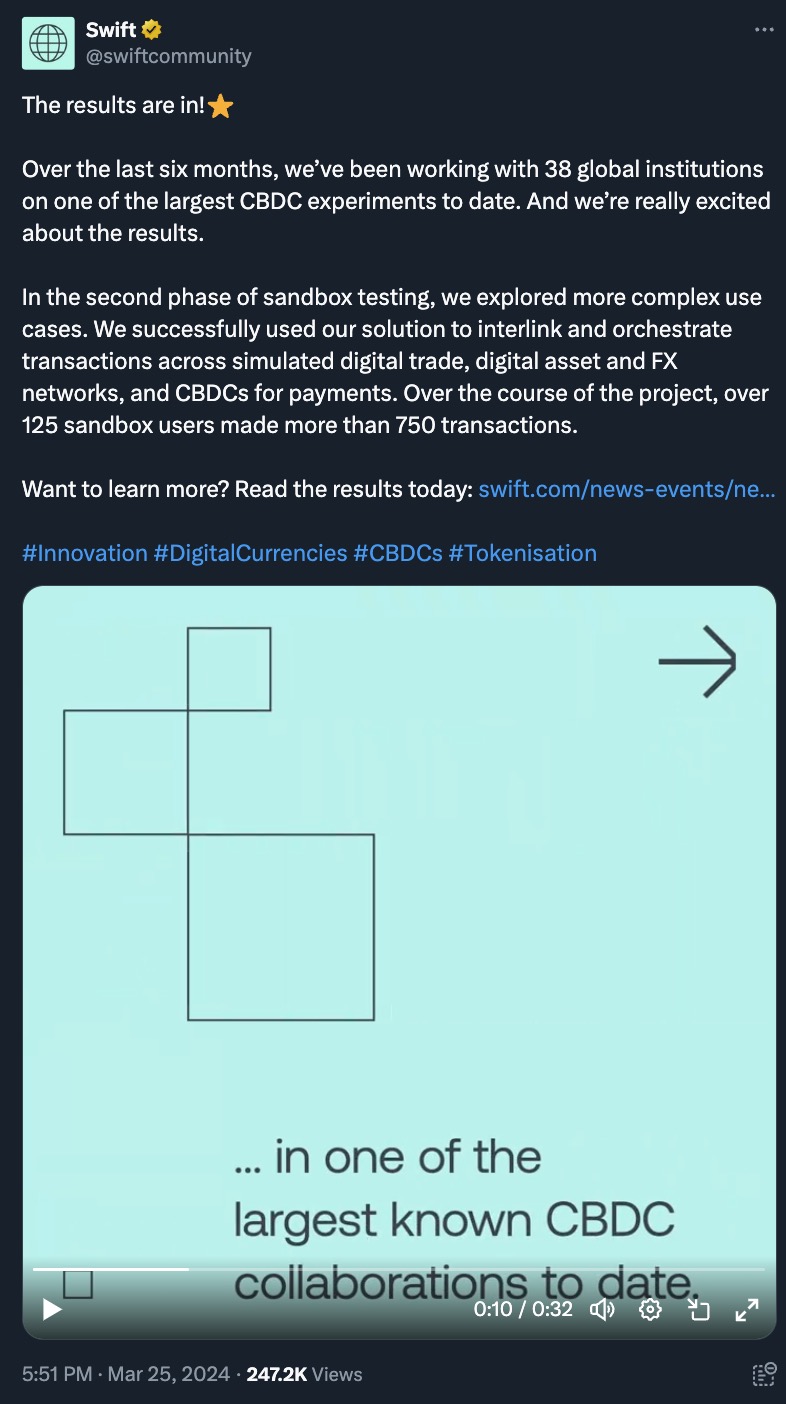The Society for Worldwide Interbank Financial Telecommunication (SWIFT) is very much so fully on board with the central bank digital currency (CBDC) push and is developing and testing an interoperability connector.
It has just been announced that this work on some of the infrastructure necessary to make CBDCs a reality is progressing to the organization’s satisfaction.
SWIFT’s CBDC interlinking solution has undergone the second phase of testing the functionality of the “connector” in sandbox conditions and involving “complex use cases” – which is said to have been successful.
Related: Central Bank Digital Currencies make authoritarianism, censorship, and surveillance easy
The simulated transactions – 750 of them – were carried out by 125 users, and among them are seven central banks and financial industry giants like Citibank, Deutsche Bank, HSBC, and Shanghai Commercial & Savings Bank.
SWIFT first started these beta tests in the fall of 2023, while the earliest trials began in March of that year, referred to as “breakthrough work” on CBDC interoperability, and at the time involving three central banks – Hong Kong Monetary Authority (HKMA) and the National Bank of Kazakhstan among them.

Also at the time, 30 financial institutions (The Reserve Bank of Australia, Deutsche Bundesbank, HKMA, Bank of Thailand, CLS…) were “experimenting with the solution in a new sandbox to explore further use cases,” a press release said last September.
Now, the results are in, and the selected four use cases covered digital trading with atomic settlements, connecting tokenization platforms, demonstrating the connector’s ability regarding current foreign exchange infrastructure, but utilizing CBDCs. Liquidity Saving Mechanism algorithms were also tested.
SWIFT touts its single point of access as allowing institutions “to reuse their existing channels, reach new networks, and bring down participation costs.”
The connector development remains in beta phase which will next focus on smart contracts, releasing and locking tokens cryptographically and “preserving data and programmability” – all those across networks, reports say, citing SWIFT.
Back in September, the Belgium-based group – whose policies and activities, not unlike those tied to CBDCs, are not uncontroversial – cited the Atlantic Council (clearly also keeping an eye on introduction of centralized digital money worldwide) as saying that 130 countries were considering CBDCs.
According to the same data, that was 19 out of the 20 G20 states, who reportedly collectively add up to “98 percent of (world) GDP).”
And so SWIFT has taken it upon itself to make sure they have the infrastructure for “interoperability.”













